![Best Real-life Projects for Developers and Computer Science Students [Source Code] 2025 1 Post thumbnail](https://www.guvi.in/blog/wp-content/uploads/2024/04/Real-life-Projects-for-Developers-and-Computer-Science-Students.webp)
Best Real-life Projects for Developers and Computer Science Students [Source Code] 2025
Mar 18, 2025 6 Min Read 58238 Views
(Last Updated)
If you are a computer science student or a budding developer, what is the easiest way to acquire coding skills or improve your proficiency in coding languages?
Theory can only get you so far. You need practical experience and that is why we curated a list of real-life projects for developers and computer science students like yourself which can help you gain practical insight into the world of programming.
In this article, you will see some of the simple yet proficient projects for developers and computer science students with source code that will help you get started easily.
So, without further ado, let’s get started!
Table of contents
- Beginner-Level Projects For Developers and Computer Science Students
- Daily Inspirational Quotes App
- Personal Budget Planner
- Weather Dashboard
- Intermediate Level Projects for Developers and Computer Science Students
- Recipe Finder Application
- Social Media Dashboard with Theme Switcher
- Personal Finance Tracker with OCR Receipt Scanning
- Advanced Level Projects For Developers and Computer Science Students
- E-commerce Platform with Microservices Architecture
- Real-time Collaborative Code Editor
- Machine Learning Model for Predictive Analysis
- Conclusion
- FAQs
- How does contributing to open-source projects help students and developers?
- Why is it important to integrate external APIs in projects?
- How does project-based learning impact a developer's problem-solving skills?
- How can developers showcase their project work to potential employers?
Beginner-Level Projects For Developers and Computer Science Students
When starting in the world of programming and development, it’s important to select projects that match your skill level to ensure both successful completion and valuable learning experiences.
But before you go any further, make sure that you know the basics of full-stack development. If not, enroll yourself in a certified online Full-stack Development course by a recognized institution as that can help you understand these projects and their technicalities much better.
Here’s a detailed look at three beginner-level projects for developers and computer science students, each designed to build foundational skills in web and software development.
1. Daily Inspirational Quotes App
![Best Real-life Projects for Developers and Computer Science Students [Source Code] 2025 2 Daily Inspirational Quotes App](https://www.guvi.in/blog/wp-content/uploads/2024/05/1-1200x628.webp)
First on our list of projects for developers and computer science students is an inspirational quotes app. The objective is to create an app that displays a new inspirational quote each day to motivate users. This project is aimed at helping you get started with basic app development and API integration.
Features:
- Displays a new quote daily from an API.
- Allows users to share quotes on social media.
- Users can save their favorite quotes in a list.
Technology Used:
- HTML/CSS: For structuring and styling the user interface.
- JavaScript: To handle API calls and manage user interactions.
- Bootstrap: To ensure the app is responsive across devices.
Learning Outcomes:
- API Integration: Learn to integrate external APIs to fetch data dynamically.
- Frontend Development Basics: Enhance skills in HTML, CSS, and JavaScript to create interactive web pages.
- Responsive Design: Understand how to make applications adaptable to different screen sizes using Bootstrap.
This is one of the useful projects for developers and computer science students as this not only enhances your coding proficiency but also helps the users get motivated for the day.
Source Code Example: Inspirational Quotes App on GitHub
2. Personal Budget Planner
![Best Real-life Projects for Developers and Computer Science Students [Source Code] 2025 3 Personal Budget Planner](https://www.guvi.in/blog/wp-content/uploads/2024/05/2-1200x628.webp)
Next up on our list of beginner-level projects for developers and computer science students is a personal budget planner. The idea is to develop a web application that allows users to manage their monthly budget efficiently, keeping track of income and expenses.
Features:
- Users can add, edit, and delete income and expense entries.
- Visual display of budget breakdown in pie charts or graphs.
- Alerts or notifications when approaching budget limits.
Technology Used:
- HTML/CSS: For building the basic structure and design of the application.
- JavaScript: To add functionality and handle user input.
- Chart.js: A JavaScript library to create responsive graphical representations of the budget data.
Learning Outcomes:
- CRUD Operations: Master Create, Read, Update, and Delete operations on user data.
- Data Visualization: Learn to visualize data using Chart.js, enhancing user experience.
- JavaScript Event Handling: Understand handling user events like clicks, entering data, and navigating through the app.
Source Code Example: Budget Planner on GitHub
Take a look at the Best Javascript Course Online with Certification
3. Weather Dashboard
![Best Real-life Projects for Developers and Computer Science Students [Source Code] 2025 4 Weather Dashboard](https://www.guvi.in/blog/wp-content/uploads/2024/05/4-1200x628.webp)
One of the interesting projects for developers and computer science students in this list is a weather dashboard. You have to create a responsive web application that provides weather forecasts and conditions for a user-specified location.
Features:
- Displays current weather conditions including temperature, humidity, wind speed, and more.
- Provides a 5-day forecast with a weather outlook.
- Allows users to search for weather by city or zip code.
Technology Used:
- HTML/CSS: For layout and styling of the dashboard.
- JavaScript: To fetch weather data from a weather API.
- Bootstrap: To ensure responsiveness and enhance the UI design.
Learning Outcomes:
- Working with APIs: Learn to use weather APIs for fetching real-time data.
- Responsive Web Design: Apply responsive design principles to ensure the dashboard works well on both desktops and mobile devices.
- JavaScript Proficiency: Improve JavaScript skills, focusing on asynchronous operations and data handling.
Source Code Example: Weather Dashboard on GitHub
Each of these beginner-level projects for developers and computer science students provides a hands-on approach to learning web and app development from scratch, focusing on real-world applications of coding knowledge.
By completing these projects for developers and computer science students, beginners can significantly boost their confidence and competence in software development.
Explore: How much DSA for Full Stack Development Is Required?
Intermediate Level Projects for Developers and Computer Science Students
Intermediate-level projects for developers and computer science students are ideal for individuals who have a solid understanding of the basics and are ready to enhance their skills by tackling more complex problems.
Here’s an in-depth look at three intermediate-level projects for developers and computer science students that cover a range of essential skills and technologies.
1. Recipe Finder Application
![Best Real-life Projects for Developers and Computer Science Students [Source Code] 2025 5 Recipe Finder Application](https://www.guvi.in/blog/wp-content/uploads/2024/05/5-1200x628.webp)
Recipe Finder Application is one of the delicious projects for developers and computer science students that allows users to input ingredients they have on hand and receive recipe suggestions based on those ingredients. This project enhances skills in API integration, user input handling, and dynamic content generation.
Features:
- Ingredient-based search to find matching recipes.
- Save favorite recipes and manage them in a personal cookbook.
- Display recipe details including ingredients, cooking instructions, and nutritional information.
Technology Used:
- React: For building a dynamic user interface that updates based on state changes.
- Node.js: To handle server-side logic, potentially for managing user accounts and favorites.
- Express: As a web server framework for Node.js to handle requests and responses.
- MongoDB: For storing user data and recipe favorites in a NoSQL database.
- External APIs: Such as Spoonacular or Edamam for fetching recipe data.
Learning Outcomes:
- Full-Stack Development: Gain experience in both front-end and back-end development.
- State Management: Learn to manage app state in React using hooks like useState and useEffect.
- API Integration: Enhance skills in integrating and managing external APIs.
- Database Operations: Learn to perform CRUD operations with MongoDB.
Source Code Example: Recipe Finder App on GitHub
2. Social Media Dashboard with Theme Switcher
![Best Real-life Projects for Developers and Computer Science Students [Source Code] 2025 6 Social Media Dashboard with Theme Switcher](https://www.guvi.in/blog/wp-content/uploads/2024/05/6-1200x628.webp)
A trendy idea in this list of intermediate-level projects for developers and computer science students is a social media dashboard.
You are supposed to create a dashboard that aggregates social media content from various platforms and includes a theme switcher to toggle between light and dark modes. This project focuses on API integration, responsive UI design, and user settings management.
Features:
- Aggregate feeds from multiple social media platforms like Twitter, Instagram, and Facebook.
- Theme switcher to toggle between light and dark mode.
- Responsive design that adapts to different devices and screen sizes.
- User authentication to save and retrieve personalized settings.
Technology Used:
- Angular or Vue.js: For building a reactive interface that updates based on user interactions.
- Sass or LESS: For advanced styling options and easier management of themes.
- OAuth: For user authentication with social media platforms.
- REST APIs: To fetch social media content dynamically.
Learning Outcomes:
- Advanced Front-End Development: Deepen understanding of modern JavaScript frameworks like Angular or Vue.js.
- Customizable UI Themes: Learn to implement theme switching using CSS preprocessors.
- Secure Authentication: Implement secure OAuth authentication.
- Handling Asynchronous Data: Master fetching and displaying data from multiple APIs concurrently.
Source Code Example: Social Media Dashboard on GitHub
3. Personal Finance Tracker with OCR Receipt Scanning
![Best Real-life Projects for Developers and Computer Science Students [Source Code] 2025 7 Personal Finance Tracker with OCR Receipt Scanning](https://www.guvi.in/blog/wp-content/uploads/2024/05/7-1200x628.webp)
Last on our list of intermediate-level projects for developers and computer science students is the finance tracker.
The idea is to develop a comprehensive personal finance tracker that allows users to scan receipts using OCR (Optical Character Recognition) to automatically log expenses. This project integrates mobile development, OCR technology, and data visualization.
Features:
- OCR to scan and extract text from receipts.
- Manually add, edit, and categorize expenses.
- Secure login system to protect user data.
Technology Used:
- Flutter: For cross-platform mobile app development.
- Firebase: For user authentication, database management, and cloud functions.
- Google Cloud Vision API: For OCR capabilities to scan receipts.
- Chart.js or similar libraries: For rendering financial charts on mobile devices.
Learning Outcomes:
- Mobile App Development: Build a cross-platform app with Flutter.
- Integrating OCR Technology: Learn to integrate and use OCR APIs for text recognition.
- Data Handling and Visualization: Manage and visualize complex data sets on mobile devices.
- Firebase: Utilize Firebase for real-time data storage and user authentication.
Source Code Example: Finance Tracker with OCR on GitHub
Each of these intermediate-level projects for developers and computer science students is designed to push your capabilities beyond the basics, introducing you to more complex programming concepts and technologies.
Advanced Level Projects For Developers and Computer Science Students
Advanced-level projects for developers and computer science students are designed for individuals who have a strong foundation in multiple aspects of software development, including both front-end and back-end technologies and are ready to apply their skills to complex, advanced challenges.
Here’s a closer look at three advanced projects for developers and computer science students that encompass a wide range of technical disciplines.
1. E-commerce Platform with Microservices Architecture
![Best Real-life Projects for Developers and Computer Science Students [Source Code] 2025 8 E-commerce Platform with Microservices Architecture](https://www.guvi.in/blog/wp-content/uploads/2024/05/3-1-1200x628.webp)
The first in our advanced list of projects for developers and computer science students is an e-commerce platform using a microservices architecture. This project aims to provide hands-on experience with distributed systems and an understanding of how large-scale applications operate.
Features:
- Product catalog management with search and filtering capabilities.
- User authentication and authorization.
- Shopping cart and order processing system.
- Microservices for handling different aspects such as payments, user management, and product management.
Technology Used:
- Docker: To containerize and manage microservices independently.
- Kubernetes: For orchestrating containers, ensuring they run where and when they should.
- React: For building a dynamic and responsive front-end.
- Node.js and Express: For backend microservices.
- MongoDB and PostgreSQL: As databases for different microservices, depending on requirements.
- RabbitMQ or Kafka: For messaging and data streaming between microservices.
Learning Outcomes:
- Microservices Architecture: Understand the design patterns and challenges of building microservices.
- Containerization and Orchestration: Learn how to use Docker and Kubernetes to manage containerized applications.
- Asynchronous Communication: Learn how to implement asynchronous communication between services using message brokers.
Source Code Example: E-commerce Microservices on GitHub
2. Real-time Collaborative Code Editor
![Best Real-life Projects for Developers and Computer Science Students [Source Code] 2025 9 Real-time Collaborative Code Editor](https://www.guvi.in/blog/wp-content/uploads/2024/05/8-1-1200x628.webp)
Next up on our list of advanced projects for developers and computer science students is a collaborative code editor.
This project explores real-time data synchronization, operational transformation, and web socket communication.
Features:
- Real-time collaborative editing for multiple users.
- Syntax highlighting for various programming languages.
- User authentication and document management.
- Ability to save, retrieve, and version control documents.
Technology Used:
- WebSocket: For real-time bi-directional communication between clients and the server.
- React: For building the client-side application.
- Node.js: For the server-side logic.
- MongoDB: For storing user data and document states.
- Redis: For managing session state and operational transformations.
Learning Outcomes:
- Real-Time Synchronization: Implement techniques for real-time data synchronization among multiple users.
- Operational Transformation: Understand and apply algorithms that prevent data conflicts during simultaneous edits.
Source Code Example: Collaborative Code Editor on GitHub
3. Machine Learning Model for Predictive Analysis
![Best Real-life Projects for Developers and Computer Science Students [Source Code] 2025 10 Machine Learning Model for Predictive Analysis](https://www.guvi.in/blog/wp-content/uploads/2024/05/9-1-1200x628.webp)
Last but not least, we have an interesting project that could help you predict trends happening in the technological industry. Last in the list of projects for developers and computer science students, we have, Machine Learning Model for predictive analysis.
This project involves real-time data collection and prediction, model training, and integration of this model into web applications to predict the dataset.
Features:
- Data collection and preprocessing.
- Model selection and training to predict outcomes based on historical data.
- User interface to interact with the model predictions.
- Integration of model into a web application for real-time predictions.
Technology Used:
- Python: For all backend logic, utilizing libraries like Pandas for data manipulation and Scikit-learn for building predictive models.
- TensorFlow or PyTorch: For more complex models involving neural networks.
- Flask or Django: To serve the machine learning model’s predictions on a web interface.
- JavaScript/HTML/CSS: For creating the front-end components to display predictive data.
Learning Outcomes:
- Data Science and Machine Learning: Acquire skills in handling, processing, and analyzing large datasets to make predictions.
- Model Deployment: Learn how to integrate a machine-learning model with traditional web applications.
- Performance Tuning: Understand how to evaluate and improve the performance of machine learning models.
- Ethical Implications: Develop awareness of the ethical implications of predictive modeling, such as bias in data and model transparency.
Source Code Example: Stock Market Prediction on GitHub
These advanced projects for developers and computer science students are excellent for enhancing your skills across a range of technologies and domains, from web development to data science and machine learning.
Learn More: Machine Learning Must-Knows: Reliable Models and Techniques
If you want to learn more about full-stack development through projects, then consider enrolling in
GUVI’s Certified Full-stack Development Course not only gives you theoretical knowledge but also practical knowledge with the help of real-world projects.
Conclusion
In conclusion, these real-life projects for developers and computer science students are an invaluable step for you to bridge the gap between theoretical knowledge and practical application.
Starting with beginner projects like a Daily Inspirational Quotes App, a Personal Budget Planner, and a Weather Dashboard introduces foundational skills in web and app development.
Intermediate projects such as a Recipe Finder Application, Social Media Dashboard, and Personal Finance Tracker expand on these basics with more complex features and integrated technologies.
For those ready to tackle advanced challenges, projects like an E-commerce Platform with Microservices, a Real-time Collaborative Code Editor, and a machine learning predictive model deep dive into sophisticated architectures and technologies.
Each project enhances your portfolio while sharpening crucial problem-solving and technical abilities, setting a strong foundation for a successful career in technology.
Also Read: Best Web Development Projects for All Techies
FAQs
Contributing to open-source projects enhances coding skills, provides experience in collaborative environments, and increases visibility in the developer community.
Integration of external APIs allows developers to build feature-rich applications efficiently by leveraging existing services and data, enhancing functionality and user experience.
It forces developers to think critically and creatively as they turn concepts into functioning applications, dealing with both planned and unforeseen challenges during development.
Developers should maintain a clean and comprehensive portfolio website, use GitHub for code sharing, and provide case studies or detailed project descriptions in their resumes.

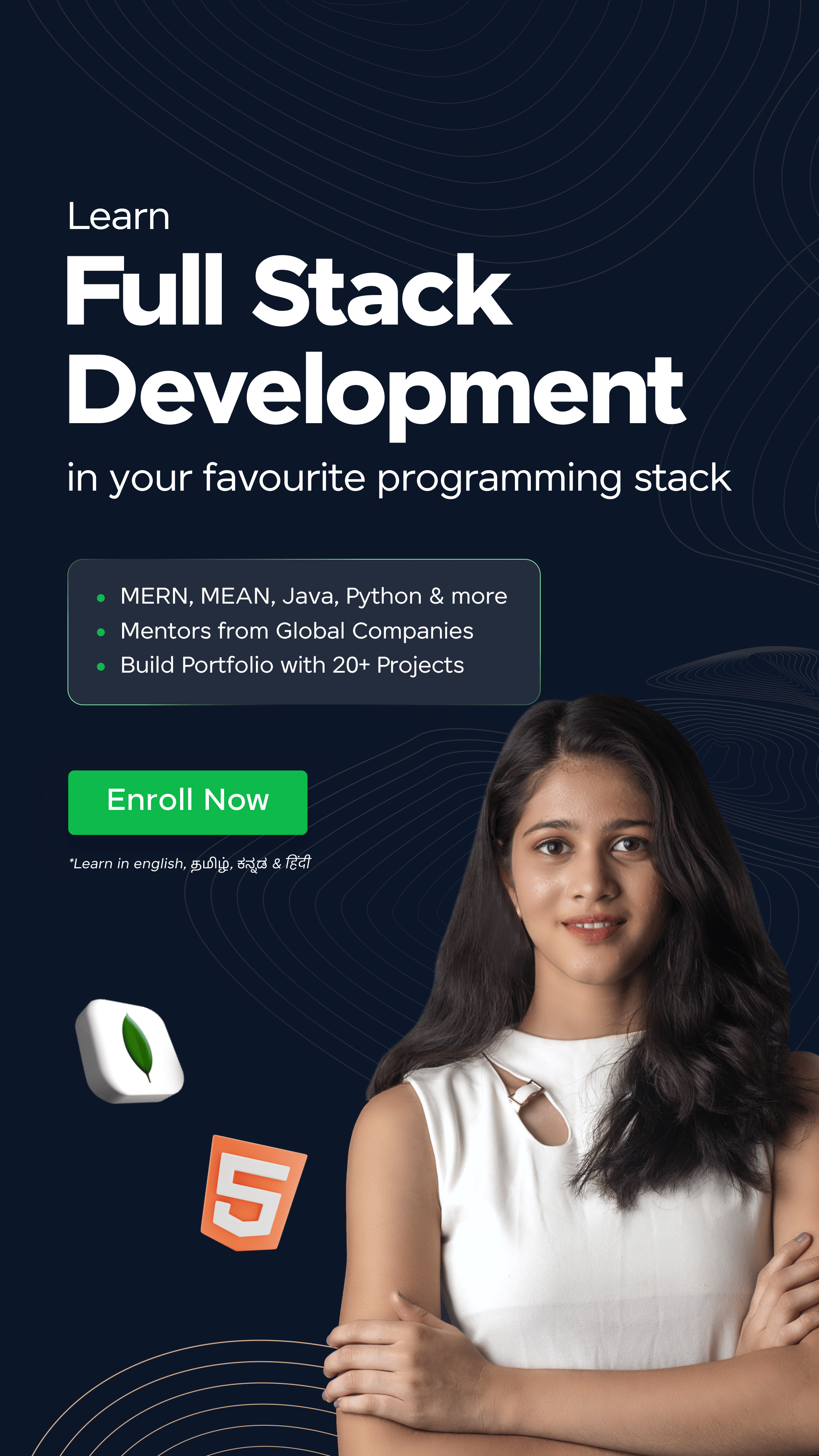



















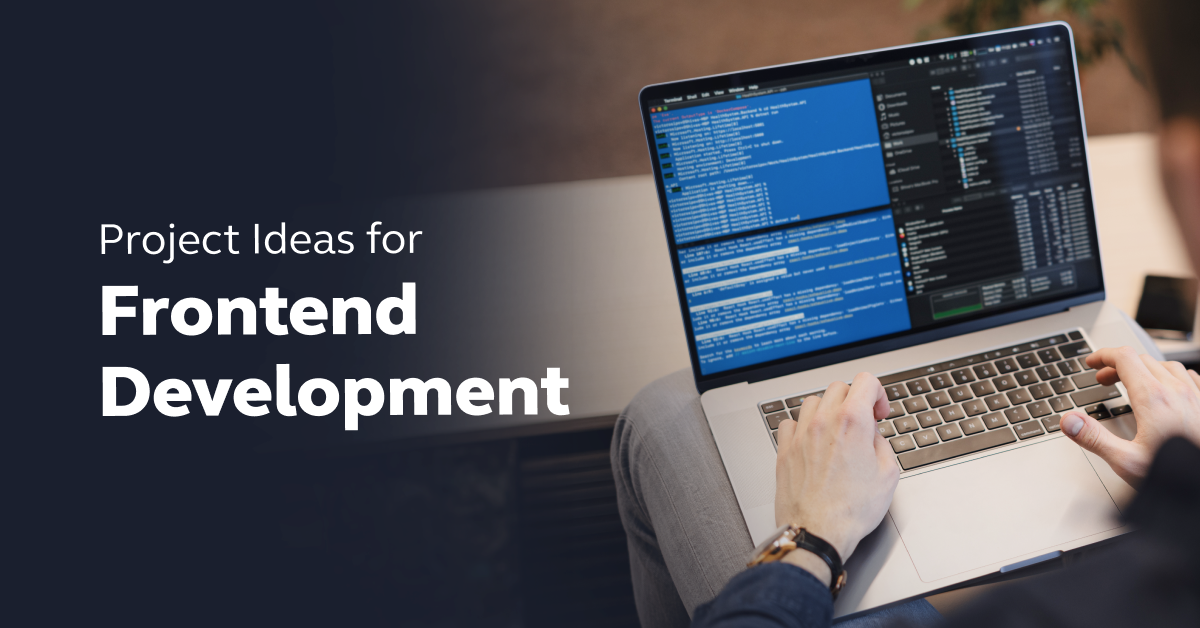
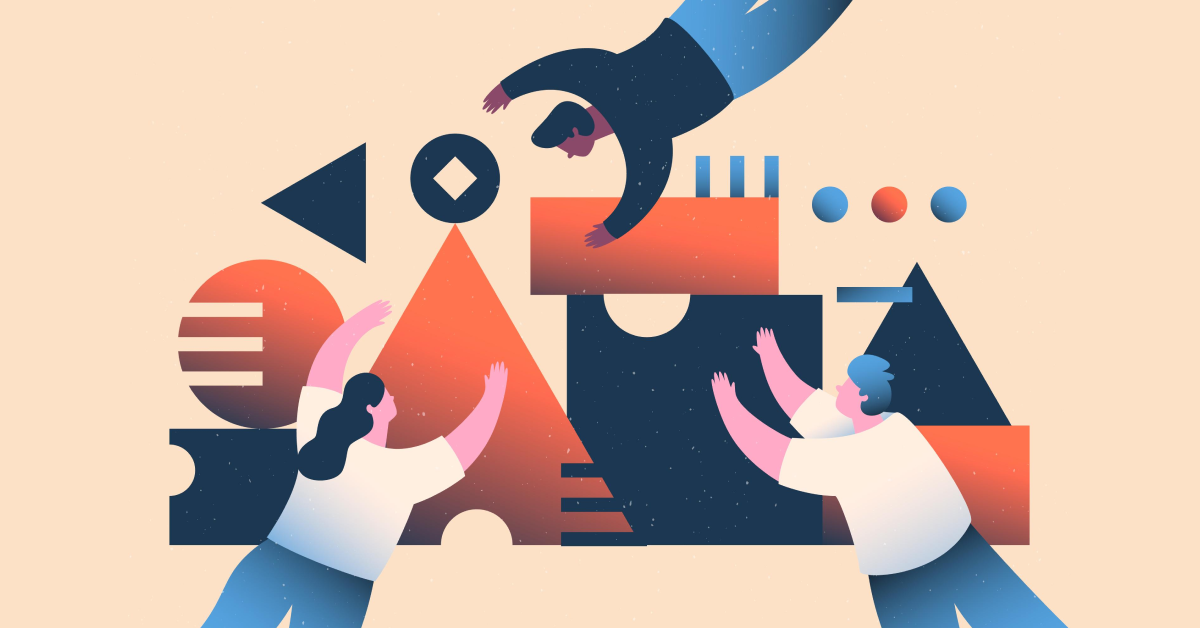
![Project-Based Learning: Smart Ideas and Important Tips To Implement It [2025] 13 Feature Image - Project-Based Learning](https://www.guvi.in/blog/wp-content/uploads/2024/05/feature_image.webp)
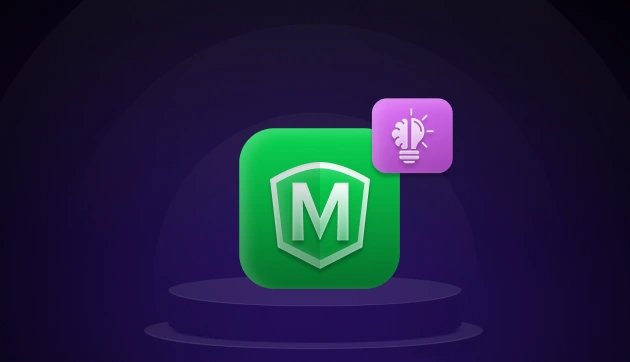
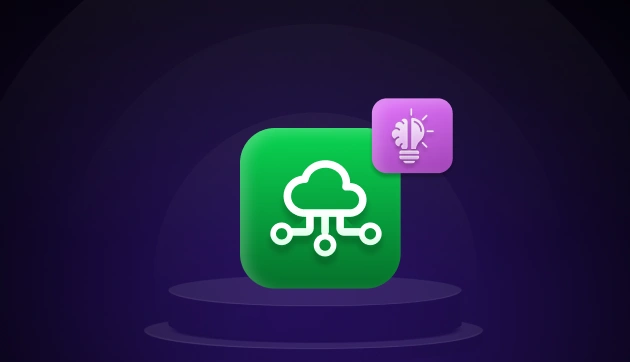
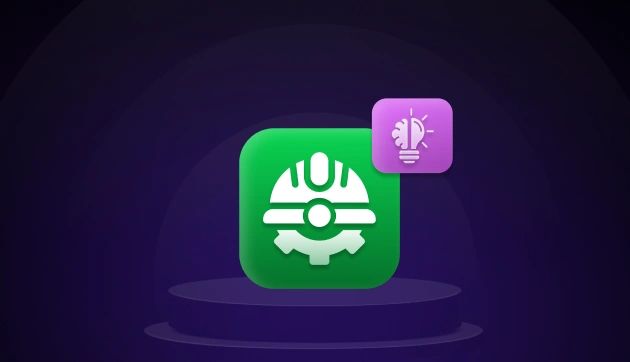


![Top 10 Coding Project Ideas for Beginners [2025] 15 coding project](https://www.guvi.in/blog/wp-content/uploads/2024/05/feature_image-.webp)

super
nothing then compare to me